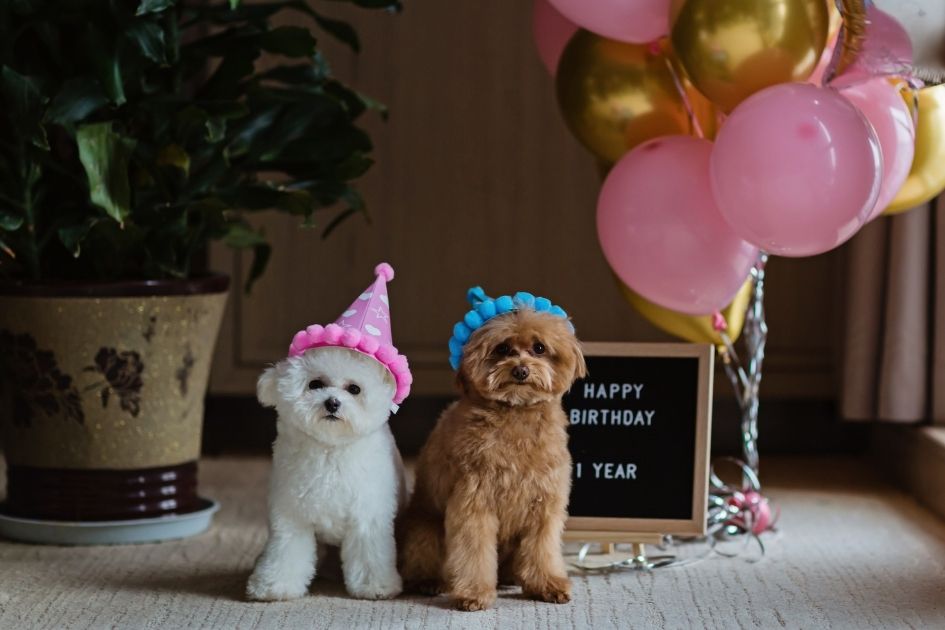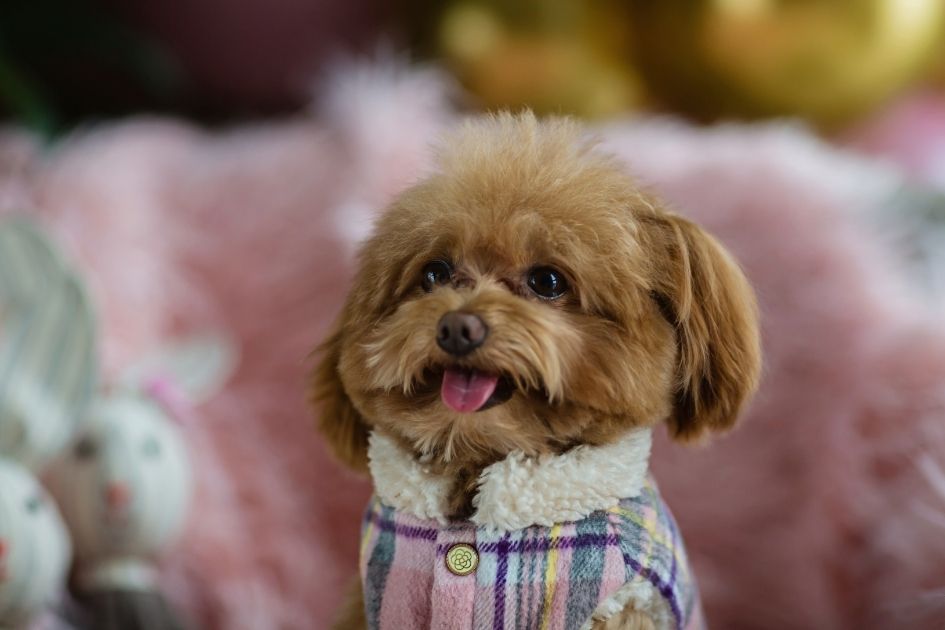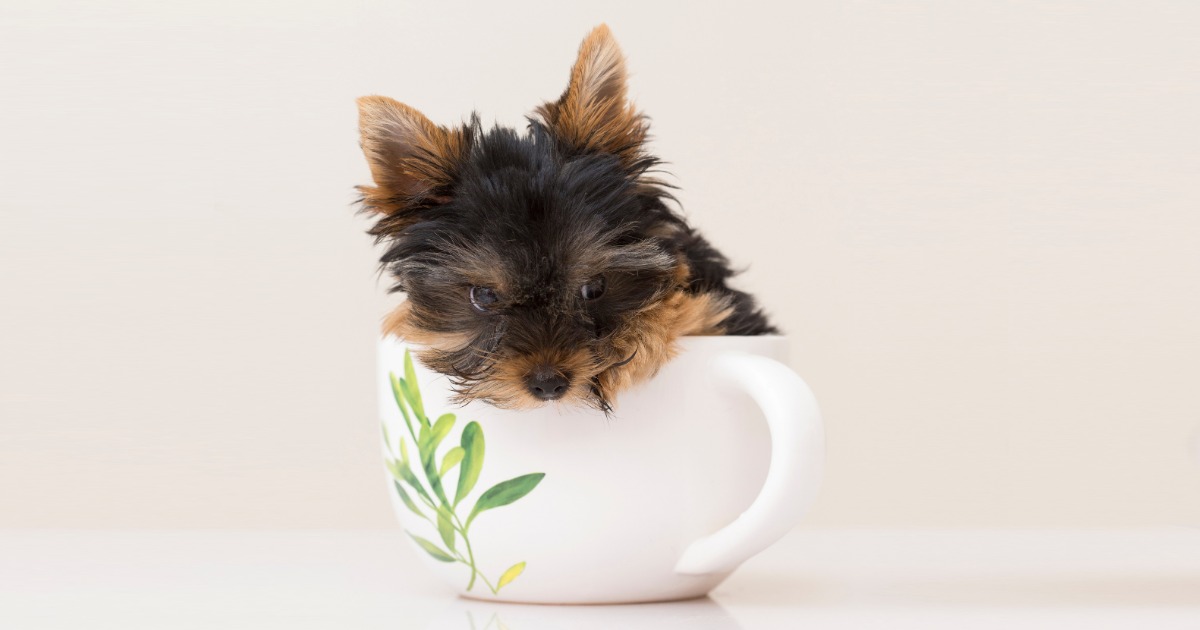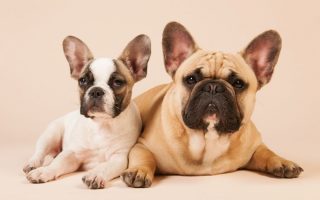Generally, Poodles come in three sizes: the standard, miniature, and toy.
However, what some people don’t know is the 4th and smallest category: The Teacup Poodle.
The Teacup Poodle is not considered an official subcategory of the Poodle, nor is it recognized by the American Kennel Club.
It is a smaller variant of the Toy Poodle, and there is not much recorded on them.
Nonetheless, as small pets become the trend, so does the interest in Teacup Poodles.
Not only are they cute, but they are also convenient. You won’t have space problems with a breed this small.
Did we mention that they’re cute?
There’s a lot to know about these little dogs. Even if you’ve come across one before, the facts about this breed may be new to you.
This article has pieces of information for you, from key facts to interesting tidbits for your mental satisfaction.
Dog Breed Information

| Dog Breed | Info |
|---|---|
| Life Span | 12 to 14 years |
| Weight | Less than 6 pounds (male, female) |
| Height | Less than 9 inches (male, female) |
| Coat | Thick, curled |
| Colors | Black, blue, silver, gray, red, white, apricot, brown, beige |
| Temperament | Loving, adaptable |
| Country of Origin | Germany |
Teacup Poodle Puppies: Before You Buy
| Characteristics | Info |
|---|---|
| Energy | Low |
| Trainability | Easy to train |
| Sociability | Friendly with everyone |
| Health | A fairly healthy breed, but prone to many illnesses like hip dysplasia and Progressive Retinal Atrophy. |
10 Teacup Poodle Facts You Need to Know
1. They have other names
We know them as Teacup Poodles, but they have many other names they identify with.
Some of these are not frequently used, but you should know them to avoid confusion. They can also be called:
- Pudle
- Barbone
- Caniche
- Chien Canne
- French Poodle
- Tea Cup Poodle
2. They make good apartment dogs
This particular information is obvious, but worth emphasizing on for you to see the benefit of having this tiny dog.
If you live in an urban city at an apartment, you know your pet options are limited.
You wouldn’t want a dog who’s too large, noisy, or highly energetic. Some small dogs don’t fit these criteria, so size isn’t a complete pass.
With a well-trained Teacup Poodle, your neighbors won’t even know you have a pet until you bring it out for a regular walk. They’re peaceful, low on energy, and small.
3. They have a dominant streak
This may come as a surprise, especially if you expected to get a sweet, submissive dog.
Teacups are loving and affectionate but do not underestimate them because of their size. They have some traits of a standard poodle, and with that comes the tendency to lead.
This gets worse when you spoil your Teacup Poodle, under the influence of their cuteness and delicacy.
Small dogs should be given the same training as big dogs. Miniature pooches are not exempt.
4. They are easy to train
Notwithstanding the dominant tendencies, Teacups won’t give you much of a hard time during training.
Their level of intelligence is as high as a normal Poodle, and Poodles are one of the most intelligent breeds of our time.
Teaching new commands and tricks is easy for this breed as Teacup Poodles learn with speed and hardly forget once thought.
You only have to establish your authority with this breed and you’re good to go.
Their intelligence and trainability make them suitable for first-timers and busy people who may not have enough time to dedicate to a series of training.
5. They enjoy human company

If your idea of a pet is an extension of your shadow, you don’t need to look any further. Teacup Poodles love being around their loved ones, and can easily fit in a bag while on a road trip.
This quality has its cons. Because they love being around people, they may react negatively if you leave them alone for long.
Separation anxiety is common with this breed, leading to behavioral problems. If your job or lifestyle requires you to stay out of your house for a long time, consider getting another breed.
6. Their coat color is only plain
Unlike some other dog breeds with spots, patterns, brindles, or any other marks, Teacup Poodles have a solid, plain color.
You should know something is wrong if someone has a Teacup with any form of mark on the coat.
The common colors on Teacup Poodles include silver, black, blue, gray, apricot, brown, and white.
7. They are registered under one breed registers
As we’ve earlier mentioned, the AKC does not recognize this breed, neither do other major kennel clubs.
While the Poodle is popular and recognized by these clubs, the Teacup remains a prodigal. The AKC merges Teacups under Toy Poodles
Nevertheless, they are registered as a breed with full rights by the Dog Registry of America Inc.
8. There’s a dark truth to the breeding of these tiny Poodles
Behind the cuteness and charm of the Teacup is sometimes bred through means that are considered unethical.
It is risky to get a dog bred this way because of the problems you may face. Thus, be careful who you get a Teacup from.
Some would advise you to avoid having one, but if they catch your fancy, find a reputable breeder with a Teacup breed who wasn’t developed by stunting growth.
9. How much is a Teacup Poodle? Expensive!
Because they are small and it is difficult to come across a good Teacup Poodle puppy, this breed is a bit on the high side. You will need a high budget before hitting the road in search of one.
A Teacup Poodle pup falls between the price range of $3,000 to $8,500.
Teacups are more expensive than the standard Poodles, which costs around $700 to $1,500.
10. They have specific health issues
Teacup Poodles suffer some of the more common health issues faced by standard Poodles and other dog breeds such as hip dysplasia.
However, they also face some peculiar health problems.
One of these health problems is allergies. Teacup Poodles suffer from a lot of allergic reactions, so their diet must be rigid to forestall issues.
Other health problems the Teacup Poodle is prone to include epilepsy, heart issues, progressive retinal atrophy, and hypoglycemia.
Do Teacup Poodles stay small?
Teacup Poodles often stop growing after they’ve reached 7 or 8 months. After that, they maintain their height of fewer than 9 inches and weight of fewer than 5 pounds.
If you get a Poodle that’s over 9 inches, it is not a Teacup.
Are Teacup Poodles high maintenance?
While Teacup Poodles don’t have a high exercise need, they have a high maintenance need and may be difficult for a new pet parent to handle.
If you want a Teacup as a first-time dog, consider hiring a groomer.
Do Teacup Poodles bark a lot?
When well trained, a Teacup Poodle barks rarely. They only bark when faced with a new guest, and usually as a welcome sign.
A Teacup Poodle who frequently barks was overpampered.
How long do Teacup Poodles live in human years?
Teacup Poodles leave up to 14 years, which is relatively long compared to other breeds. In human years, that would be about 72 years for small dogs.
What’s the difference between a Toy Poodle and a Teacup Poodle?
According to the American Kennel Club, there is no difference between a Toy Poodle and a Teacup Poodle. The latter is classified under the Toy Poodle category.
That said, it is unofficially recognized that Teacup Poodles are smaller than Toy Poodles.
Wrap Up
The Teacup Poodle may be gaining the interest of the general public, but you should be careful before getting one.
The illegal methods sometimes used to breed these dogs may lead to health issues in the future.
If you get a Teacup Poodle, be sure to meet its needs, however high they may be. With the pieces of information we have provided, it should be less difficult.
You May Also Like: 20 Rare & Exotic Dog Breeds That’ll Blow Your Mind







